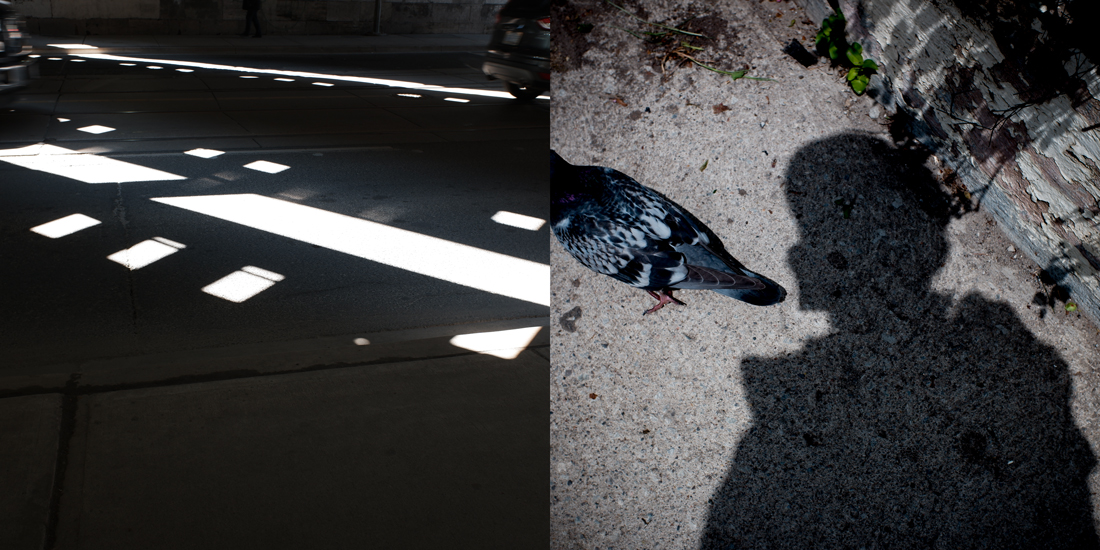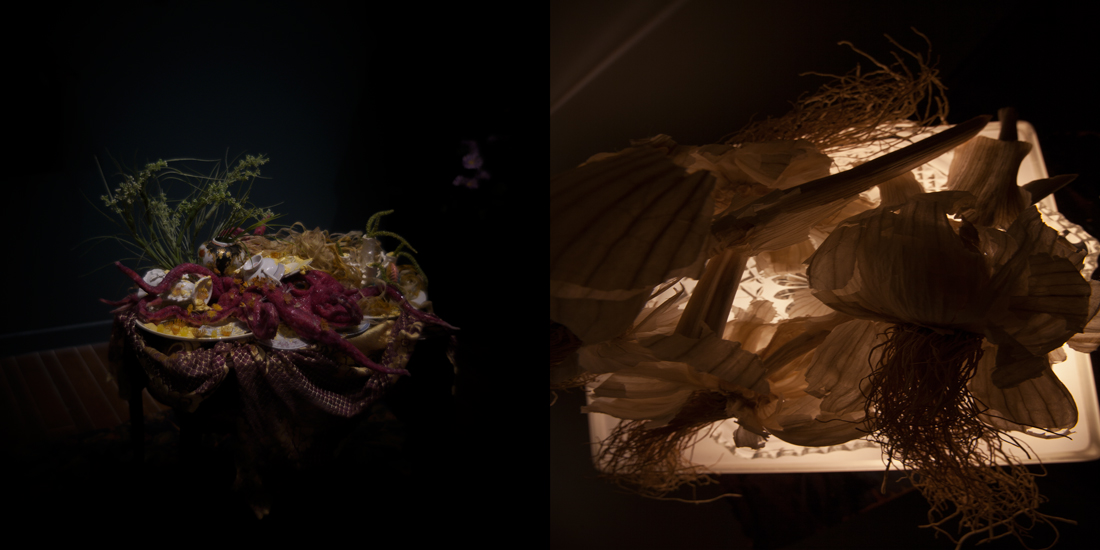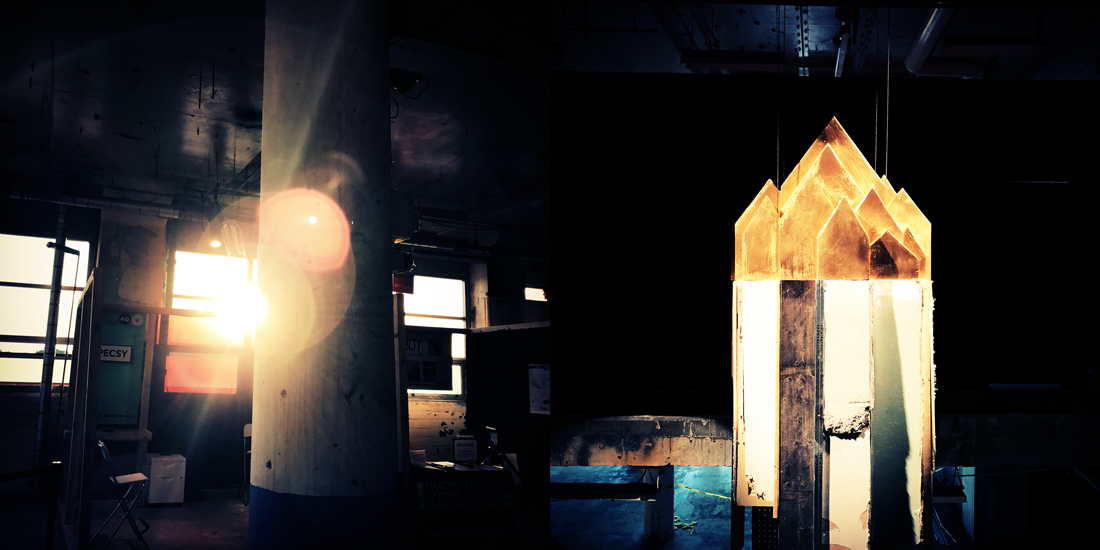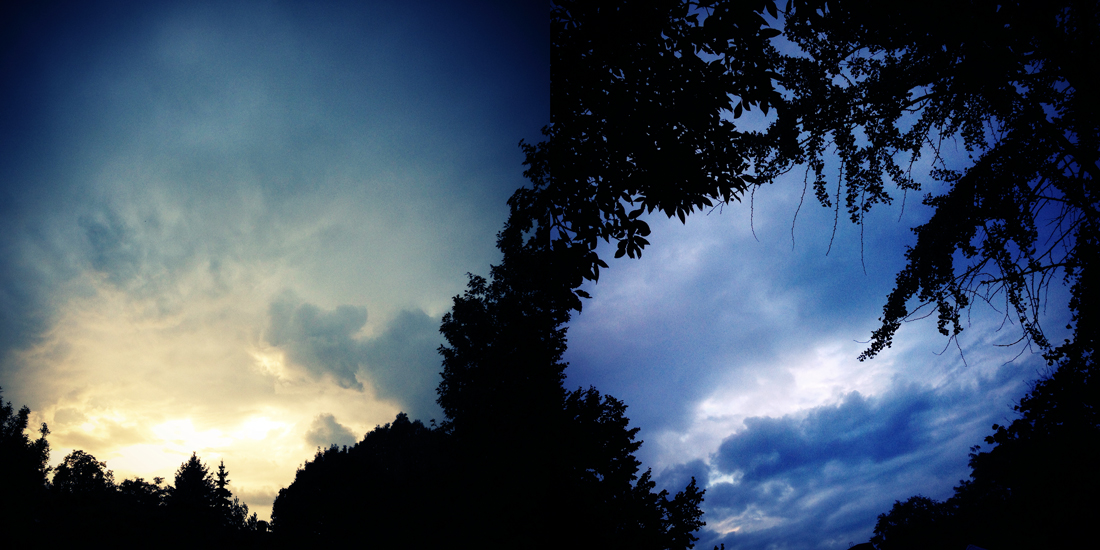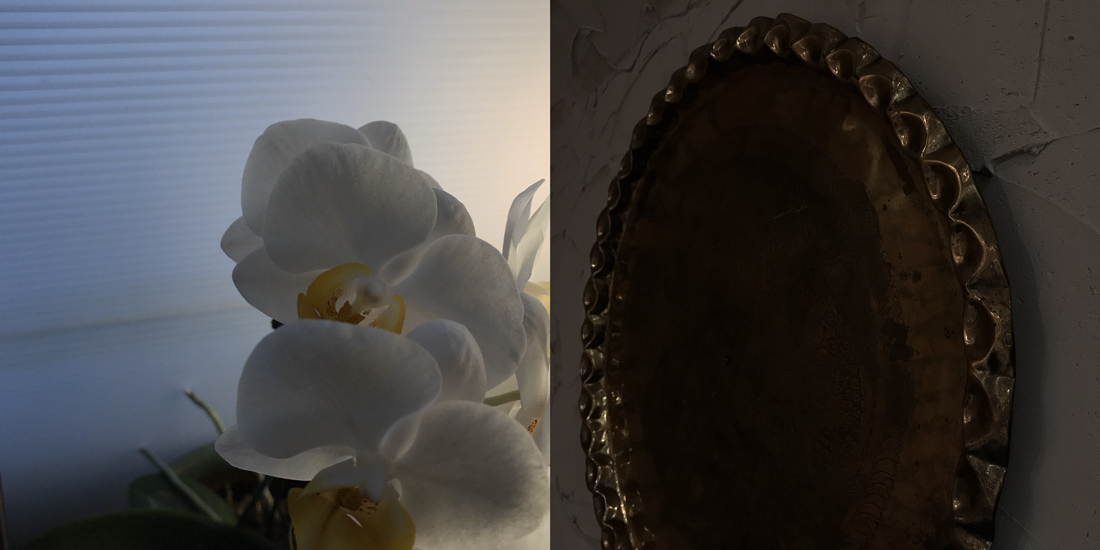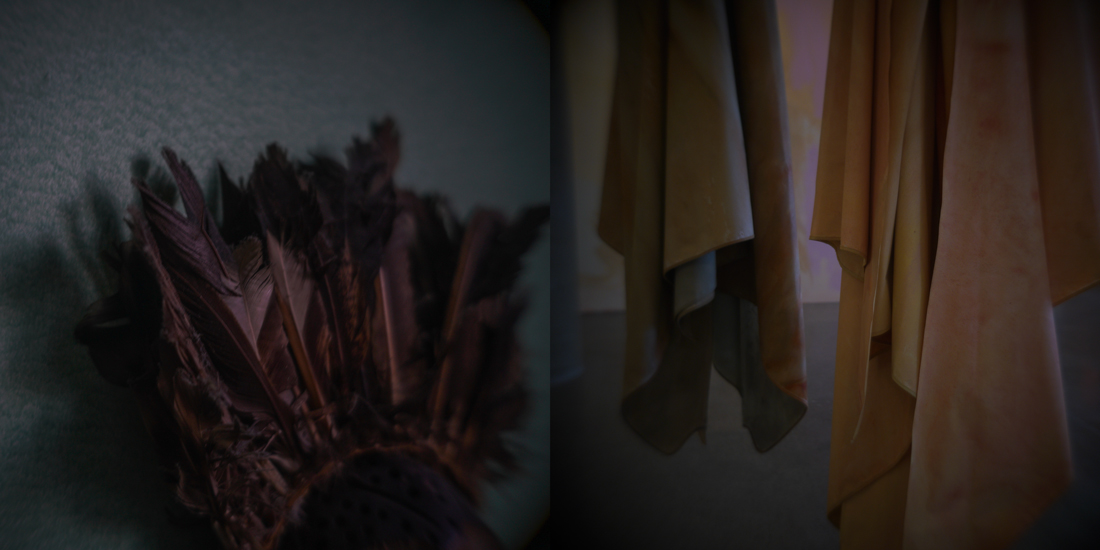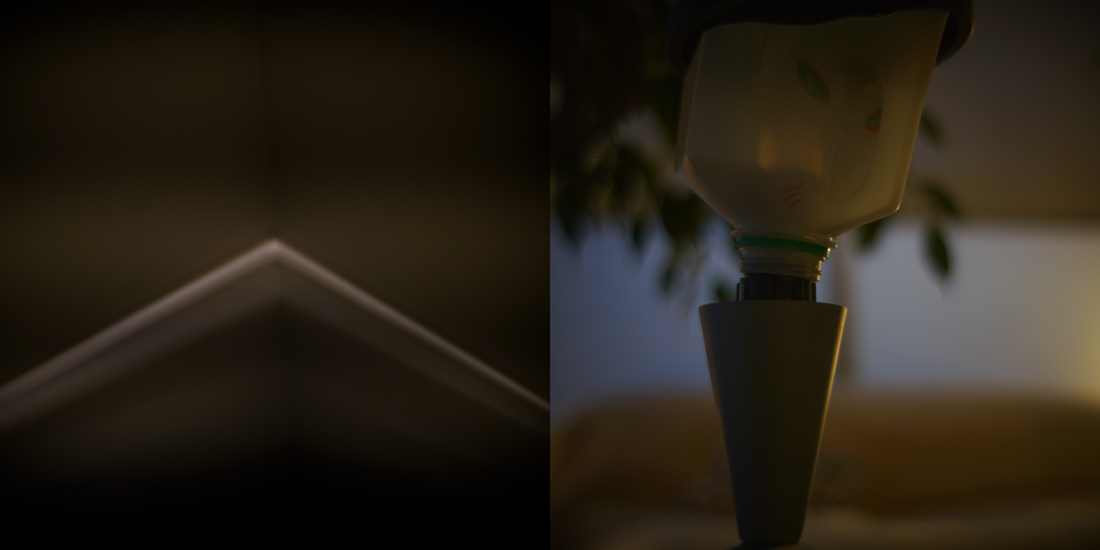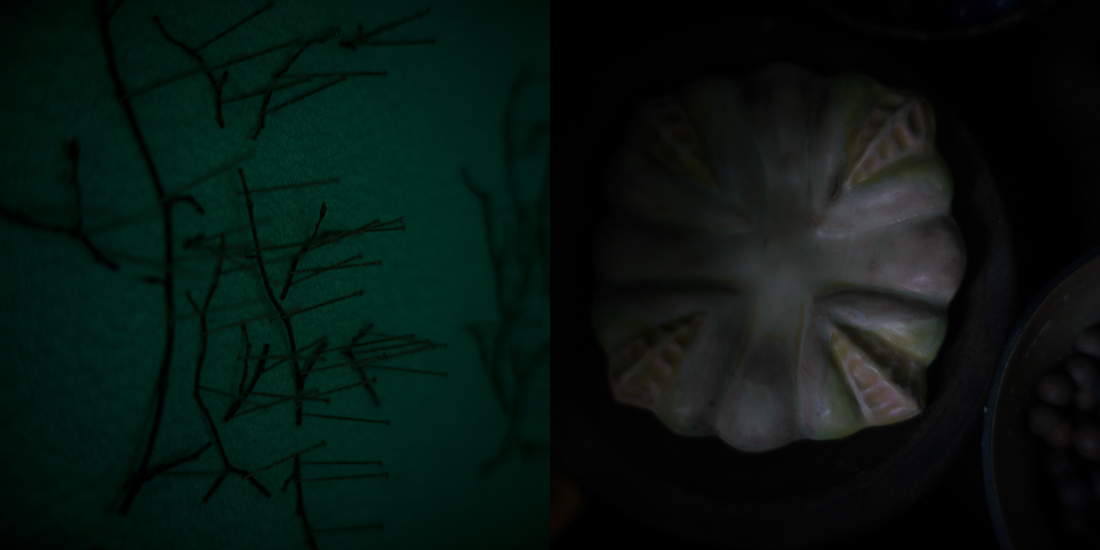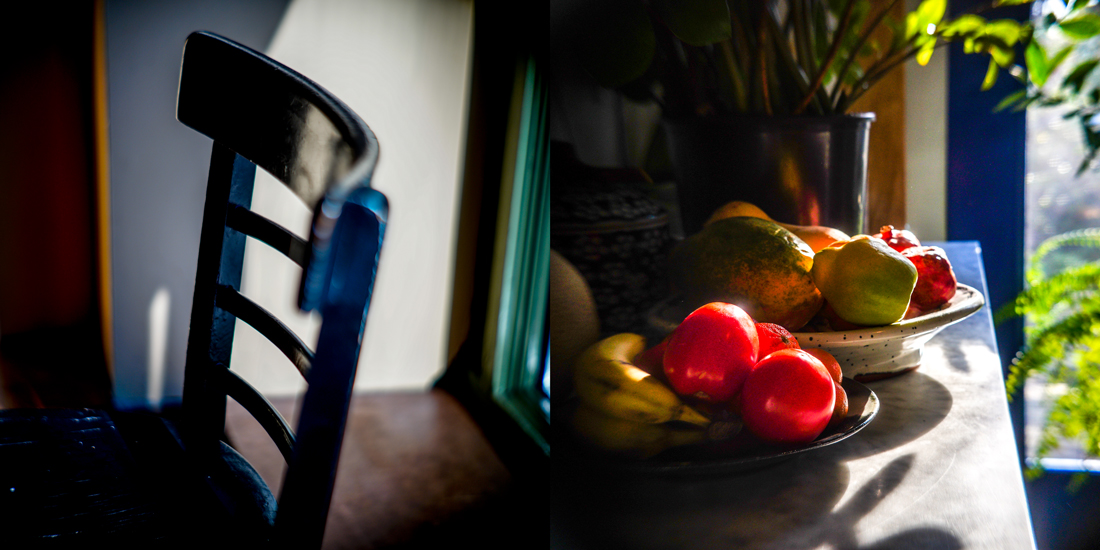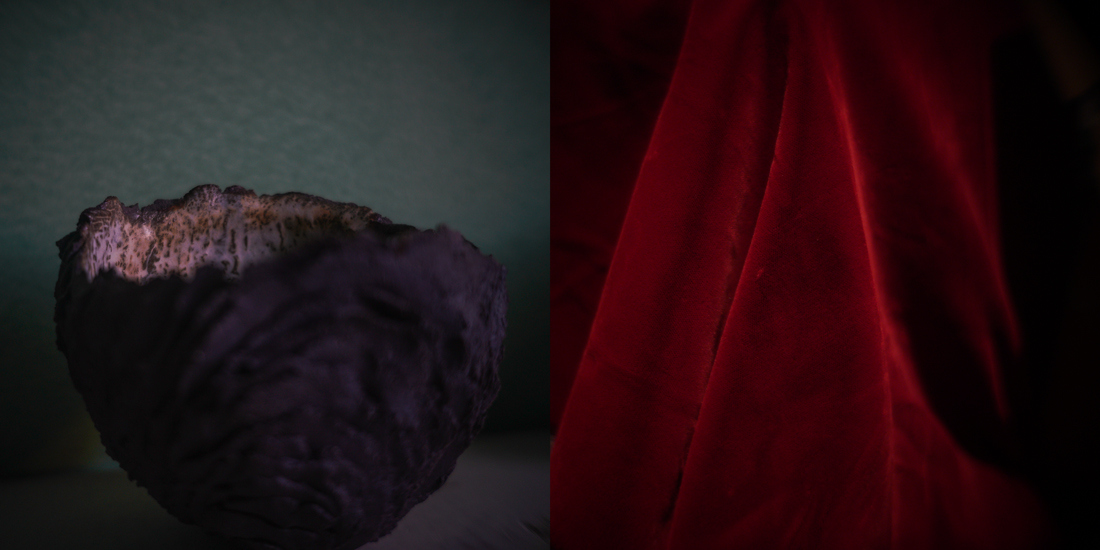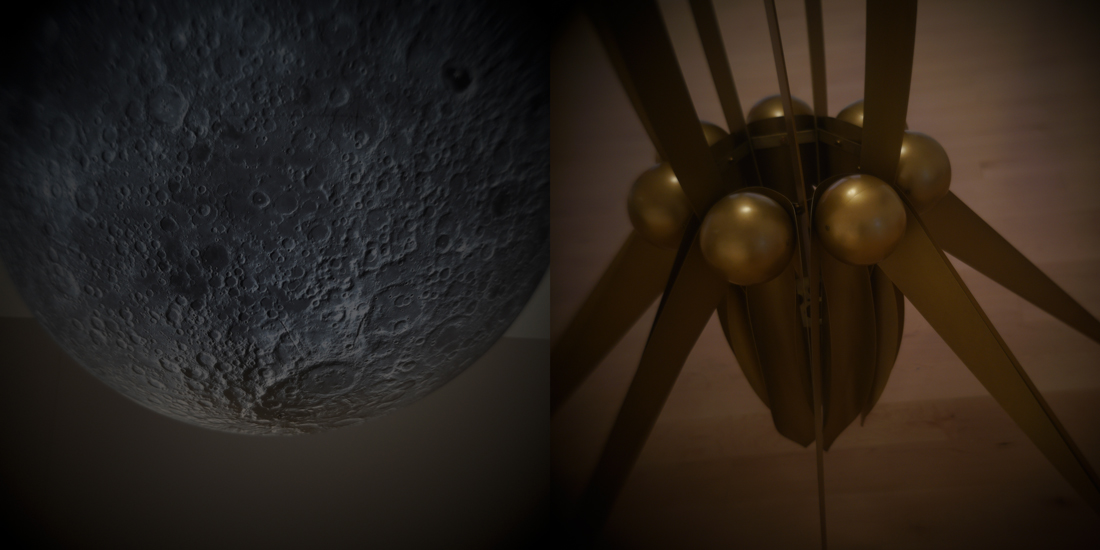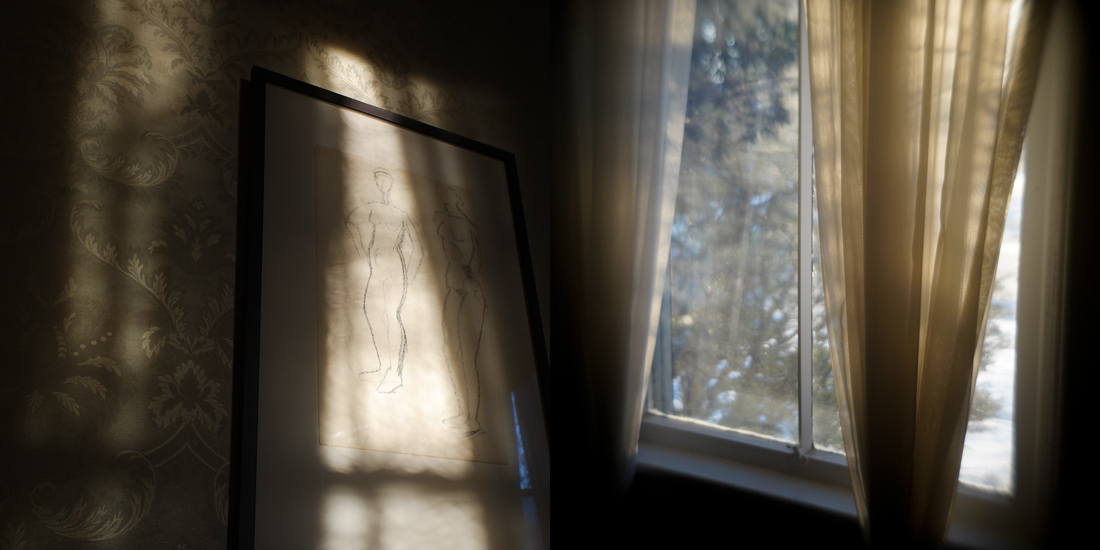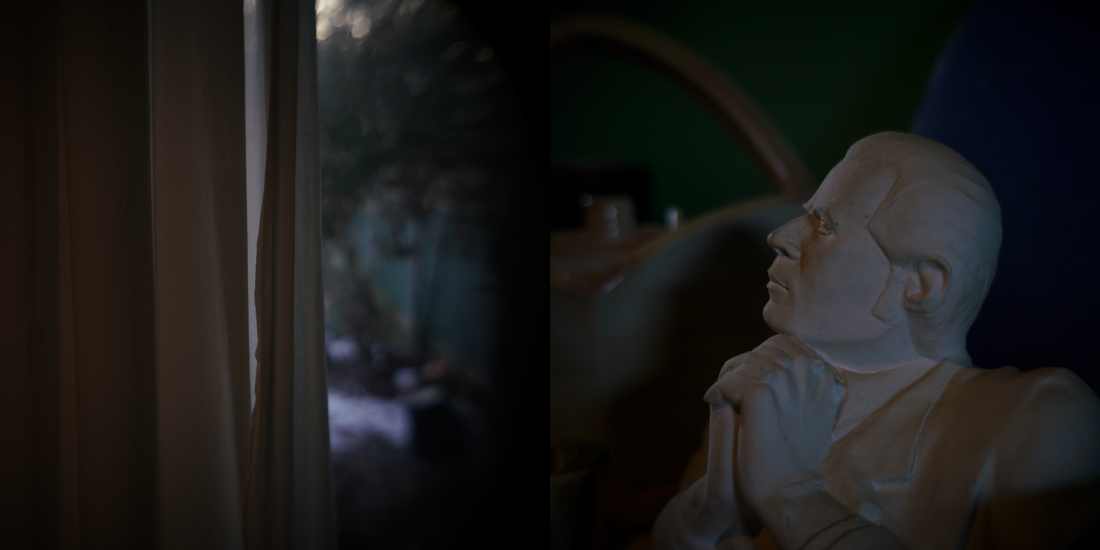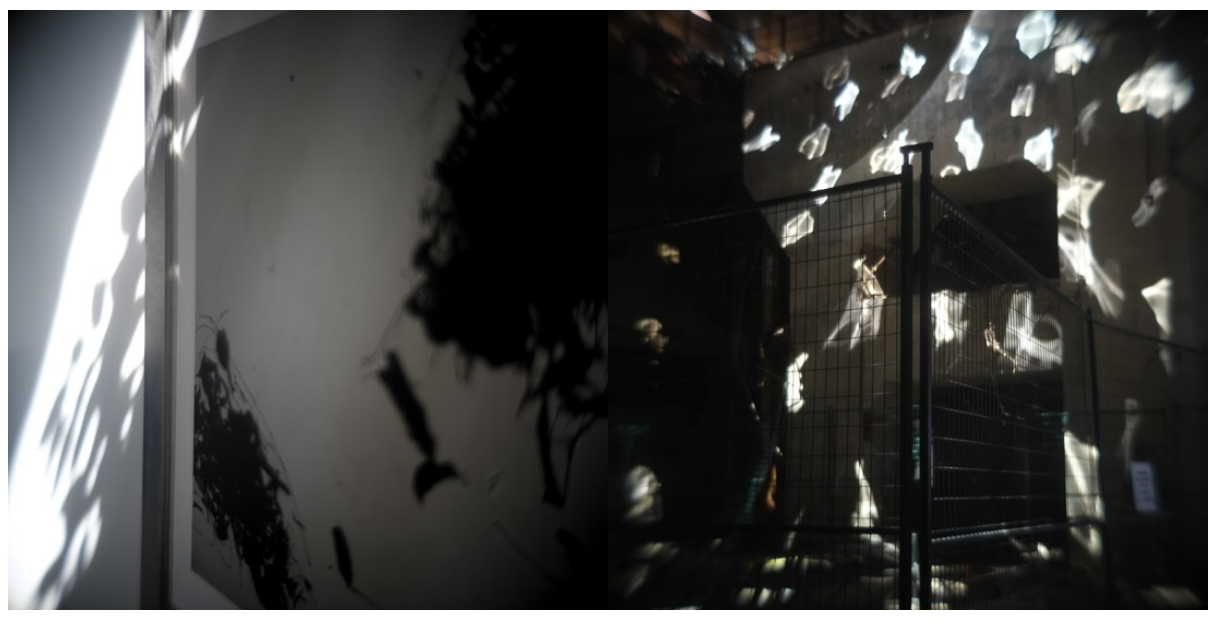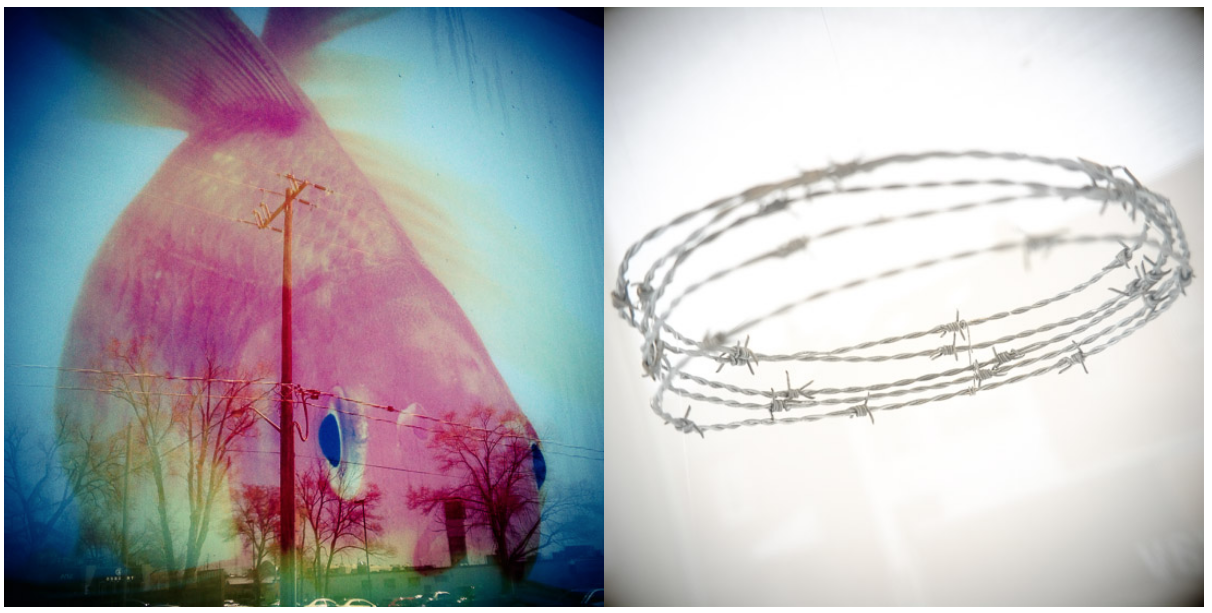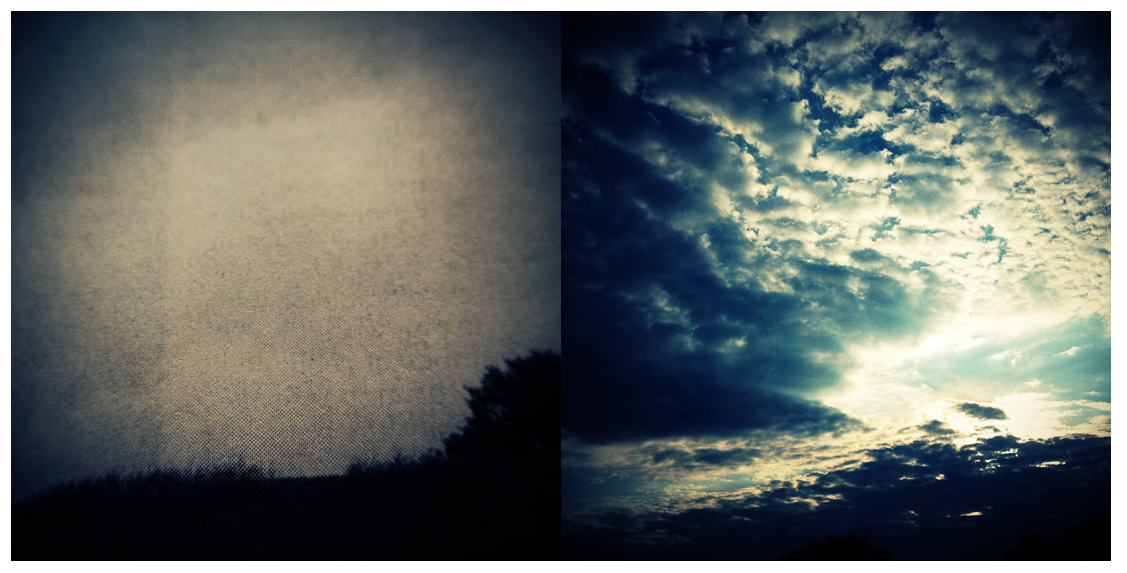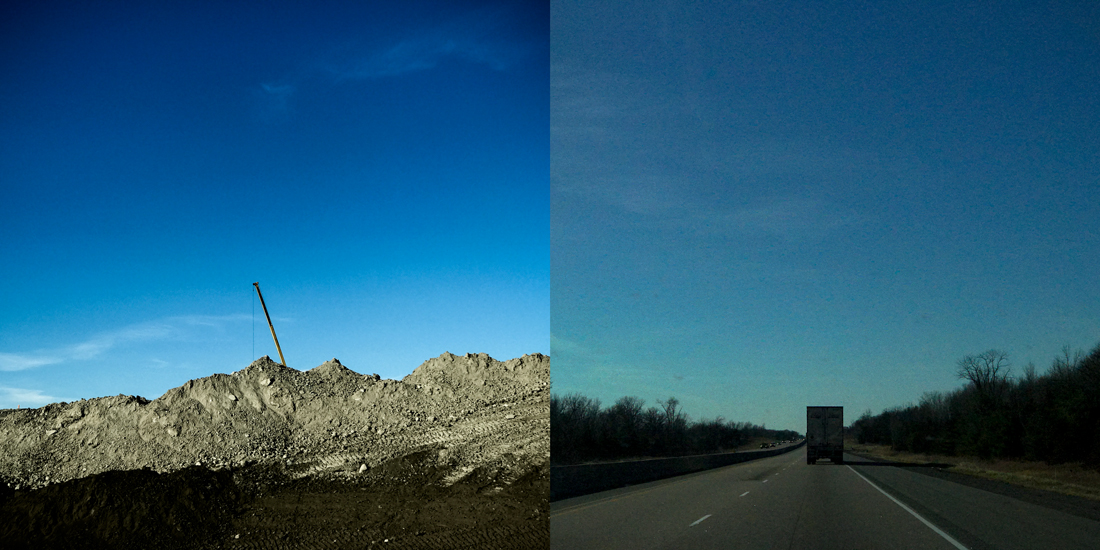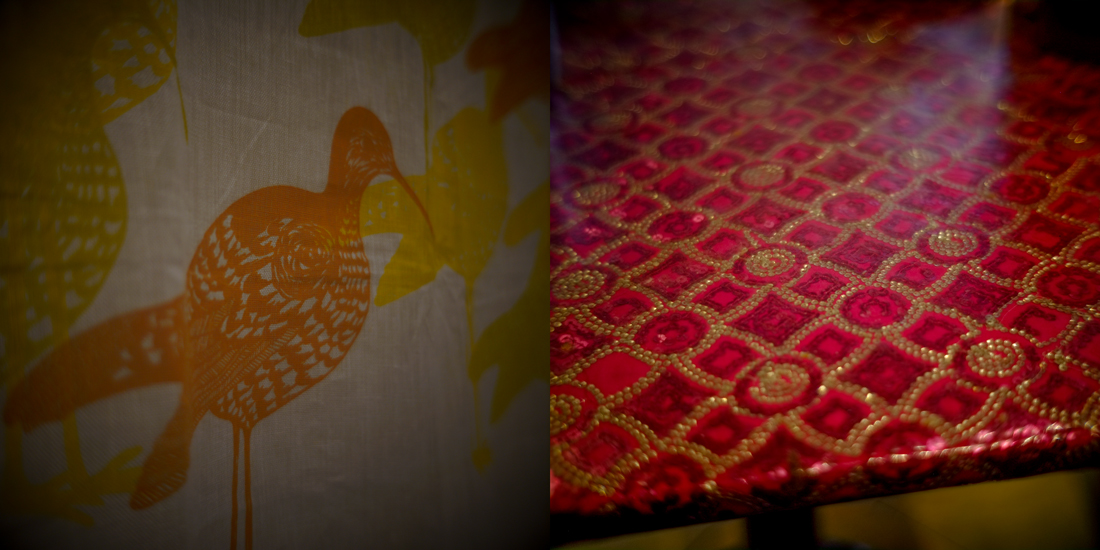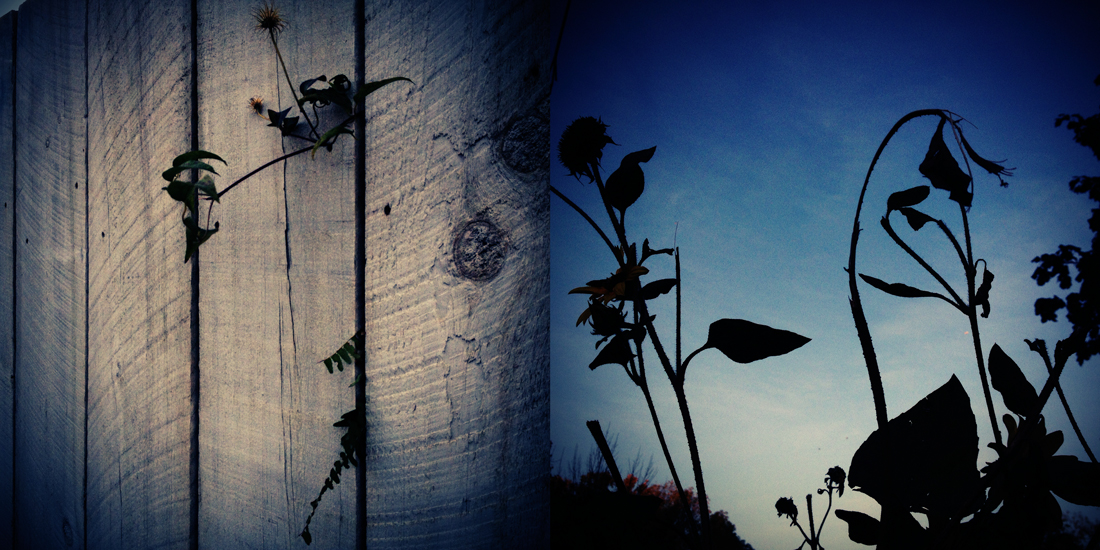Number 40
The Pigeon at my Feet
there is a pigeon
at my feet
both of us moving
towards the street
the pigeon is round
but has no head
I am no body
a shadow instead
maybe we can coalesce
becoming
one solid birdman more
and one pebbled shadow less
Number 39
Foodscape
two fried eggs
that serve
as small suns
satellite peas
bobbing like buoys
on choppy seas
a celery tree
on the beach
several caves of yam
with a jar
of strawberry jam
in each
stretches of fish
laid on a porcelain dish
seaweed dill
spread on the windowsill
Number 38
Gold
don't sit on anyone's lap*
unless it's a horse's lap
all done up snappy and tight
you are as heavy as gold
but the horse is pleased as punch
to shoulder your shine
*Jean Arp, “I Am a Horse” in Marcel Jean ed., Arp on Arp: Poems, Essays, Memories (New York: Viking Press, 1972), p.75
Number 37
Hard to Grasp
the days
are gelatinous
too slippery
to knot together
there's no purchase
in my pull
I'll he here
tugging
until the geese
fly over
Number 36
An Orchid in the Mirror
The doubling of the orchid
is a calamitous irony.
"Damned by the mirror that reflects you"
wrote Ronsard,
watering the eye rather than the image,
turning its back on the other
with its back turned to it.
Take the mirror in your arms
like a woman, like squinting envy,
with the orchid like a decoy
over the abyss
of your multiplied life.
The orchid can irritate you
back home again
where this equals something else
and not that
May 26, 2004.
This poem is one of the fifty making up The Orchid Book, a small handmade volume of my orchid poems with drawings and water colours by my soon-to-be wife, Malgorzata. It was made the year after we met--in 2004.
Number 35
COINS
there are usually coins
in your pocket
you feel good
with a little more weight
on one side
it's the pretty joy
of asymmetry
the burnished jingle
sounding the all-clear
you walk on
rhyming with the birds
Number 34
The Lion Hatchery
they fabricate lions here
starting them
as spoonfuls of mercury
heated in silver crucibles
with melted gold
for their tawny coats,
sticks of amber
for eyes,
ivory spikes for teeth
their claws are bronze
the lion forms quickly!
the finishing touch,
its horizon roar,
derives from
percolating ecstasies
of thunder
kept in strong chrome jars
Number 33
A CRY OF PIGEONS
a man finds himself
in a cry of pigeons*
“you can have your
sphere of air,” he says
“just leave me
the sigh of grass underneath.”
*George Steiner, Anno Domini (Woodstalk, New York: Overlook Press, 1980), p.159.
Number 32
INSIDE A LIGHT BULB
inside a light bulb
there is a filament
but also a vacuum ocean
of hot glowing fishes
sizzling seaweed
incandescent clams
and mussels
son-et-lumiere shipwrecks
and sometimes a bigtail shark
hot as a radiator
NUMBER 31
What Would You Rather Hear (I'm Just Asking)?
what
would you
rather hear?
the short sound
of an apple
on a plate
or the long sound
of a tree limb
falling all day
to the ground?
Number 30
Nature Morte
a vase
is becoming
bone
still
with its life
leaving
without
the support of
apple
or artichoke
in these
absences
will fall
into dust
Number 29
Keeping Up With Covid-19
another day
and more statistics
the numbers come at you
like ballistics
what are the virus's
characteristics?
are they changing?
ask the mystics.
ask the doctors
who hope they know
whether it's red
or green to go.
ask the pundits
to be precise
as they tighten
the vise
Number 28
Spring Poem
the spring rain
stops
and it feels like
never again
after the rain
there is no more
noise left
trucks and cars
pass
silent as clouds
a man
walking his dog
tries to whistle
and can't
the first bulbs
shimmer into the air
with no applause
or beaming
Number 27
The Butterfly and the Clock
a butterfly
floating
in light-laden air
comes to a clock
and touches
each of the numbers on its dial
leaving behind
motes of powdered time
the clock fans the air
with its wooden wings
while the butterfly
tears up the clock's
brown shadow
waiting for a moment
until the old spring
starts to unwind
evenly again
Number 26
Nobody Knows the Sick
nobody knows
the sick
illness changes
their names
they're waiting
but you can't find them
Number 25
In the Room
He slipped two fingers
between the slats
of the Venetian blinds
and let a wan slice
of autumn light
into the room*
She poked two fingers
through the screen
on the bedroom window
and let a quarter pound
of mosquitoes
into the room
He tore six inches
of wallpaper
from the hall closet
thereby releasing
a puff of air
two decades old
into the room
She raised her skirt
and curtsied
to the old refrigerator
whose sudden heat
swung open its porcelain door
letting gleeful vegetables tumble
into the room
* The first stanza is lifted from Michael Chabon, The Amazing Adventures of Kavalier & Clay (New York: Picador, 2000), p.225.
Number 24
After Jules Renard
If I were a bird
I would sleep
in a cloud
where I wasn't allowed
If I were a bird
I would rest
right there
in the air
Number 23
Expulsion from the Garden
O Eve
your exciting
apple
inflames
my Adam
shaketh out
my dewy
locks
I end up
running the length
and breadth
of Eden
hard as a parsnip
let's get expelled
straightaway
we'll find
a room somewhere
and get some
rest
Number 21
the naked child's sky
oily with joy
is fifteen times bluer
than an old man's sky
his sky is frayed rope
when he looks up
somebody locks a door
Number 20
Birds in Winter
My wife feeds the birds
all winter
They see her
every day
through
the sunroom window
scooping up today’s allotment
of seeds
from a big sack
she told me
there were
maybe a hundred birds
in our trees yesterday
They flutter
to keep warm
they sing
to cheer her on
they applaud her
Deep Feeding
In my poem
Birds in Winter
I meant to say
that my wife feeds
the birds
and instead wrote
that she feels
the birds
which she says
she likes better
and in truth
it is more like her
Number 19
Mediterraneo
the fishermen
mending their nets
and sleeping
in the sunshine*
a nun hurries by
carrying a violet basket
a man clashes out
a squid's brains
on the dock
the creature's soul
flops its way
up to
a passing cloud
* The first four lines of the poem are from Jean Cocteau's essay, "On Haunted Houses" in his On The Difficulty of Being (London: Peter Owen, 1966), p.73.
Number 18
Note: The "Blake" mentioned in the following poem is the English poet and painter, William Blake (1757-1827).
Blake Spoke to me Directly
Blake spoke to me directly
I listened circumspectly
Then speaking very loud
he hit me with a cloud
And when I asked him why
he re-assumed the sky
It made me rather proud
his whacking me with cloud
Number 17
Glance
truck drivers look down into your car
they dispose of you
with a glance
they hate your constraint
you dislike their hurtling resources
--from Southwester, 35 Poems (Toronto: Lyricalmyrical Press, 2007).
Number 16
He made one wing white
and the second wing red
which sharpened the eye
and streamlined the head
the angel spun round
in prismatic disgrace
while the painter grew rich
from the egg on his face
(from The Bronzino Poems, Toronto, Exile Editions, 2011)
Number 15
Unsleep
every night
i awaken
at a quarter to three
but there is still sleep
in me
I can feel it thick
like toothpaste in a tube
I need to get back
to sleep
and coil up
squeezing myself
flat
by morning
Subscribe to:
Comments (Atom)

